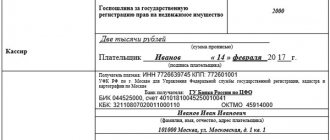Illegal seizure of land in state or private ownership has recently become a frequent occurrence in our daily life. Moreover, the problem remains relevant regardless of whether the appropriation of a park area or an individual plot occurs. At the legislative level, the authorities have considered this situation comprehensively and provide for liability for unauthorized occupation of a plot of land.
Dear readers! Our articles talk about typical ways to resolve legal issues, but each case is unique. If you want to find out how to solve your specific problem, please contact the online consultant form on the right. It's fast and free! Or call us at 8(800)-350-30-02 (the call is free for all regions of Russia)!
Article 7.1 unauthorized occupation of a land plot
Unauthorized occupation of a land plot is the possession by a third party of part or all of the plot if documentation confirming the right of ownership (purchase and sale agreement, resolution of local government bodies, lease agreement, etc.) cannot be provided as a basis.
If this reason is revealed, the plot must be immediately returned to the owner and the costs incurred by the unauthorized occupier will not be reimbursed.
Administrative liability for unauthorized occupation of a land plot arises in accordance with the Code of Administrative Offenses; Article 7.1 provides for fines for the lack of permits for the plot.
According to the notes to this article, if an individual entrepreneur takes possession of the land, he will be liable as a legal entity.
IMPORTANT! You need to know that land always has an owner. If it is not in the use and possession of citizens, organizations, municipalities, then it belongs to the state as a whole. This is stated in Article 16 of the RF Land Code.
If an unauthorized owner moved part of a fence or built a structure on someone else’s property, this will also be considered illegal.
If a person has taken possession of someone else’s land, then by virtue of Article 60 of the Land Code of the Russian Federation, the owner’s right to it must be restored. And also the plot must be returned to the owner in accordance with Article 76 of the said law, and all buildings must be demolished by the illegal user.
Civil legislation establishes a mandatory requirement to register ownership, as well as alienation, in the Rosreestr branch. At the same time, only a deed of gift or sale and purchase made orally (in writing) does not carry ownership rights.
The only relaxation the law gives is to lease and sublease agreements valid for up to a year. In this case, registration at the Rosreestr branch is not necessary.
What are the consequences of unauthorized occupation of a land plot, according to the Code of Administrative Offenses of the Russian Federation?
Unauthorized occupation of a land plot or part of a land plot, including the use of a land plot by a person who does not have the rights to the specified land plot provided for by the legislation of the Russian Federation - entails the imposition of an administrative fine if the cadastral value of the land plot is determined, on citizens in the amount of 1 up to 1.5 percent of the cadastral value of the land plot, but not less than five thousand rubles; for officials - from 1.5 to 2 percent of the cadastral value of the land plot, but not less than twenty thousand rubles; for legal entities - from 2 to 3 percent of the cadastral value of the land plot, but not less than one hundred thousand rubles, and if the cadastral value of the land plot has not been determined, for citizens in the amount of five thousand to ten thousand rubles; for officials - from twenty thousand to fifty thousand rubles; for legal entities - from one hundred thousand to two hundred thousand rubles.
Responsibility for unauthorized occupation of land
The right to protection of property is proclaimed in the Constitution of the Russian Federation. Property can only be deprived by a court decision. It is legal to forcibly take away a plot if an equivalent replacement is provided. Property is protected by civil law, for example, by the provisions of Articles 209 and 218 of the Civil Code.
Article 218 indicates the alienation of a land plot through acquisition, donation, exchange or other transaction.
If the plot is alienated in another way, then such actions will be qualified as taking.
In case of unauthorized occupation of a land plot, judicial practice is on the side of the legal owner. To return property, you should contact the judicial authorities at the location of the property. The court takes into account, as important circumstances of the case, the time of acquisition, the grounds, the land plot itself, its location and purpose and the degree of guilt of the unauthorized owner, and also relies on the testimony of witnesses.
If the real owner has not shown interest in the site for a long time, he in any case cannot be deprived of it, and his rights must be protected.
Land may be recognized as ownerless on the basis of a resolution of local government bodies.
Responsibility for unauthorized occupation of land.
⇐ PreviousPage 7 of 7Article 7.1 of the Code of Administrative Offenses. Unauthorized occupation of a land plot or use of a land plot without duly executed title documents for the land, and, if necessary, without documents permitting the implementation of economic activities -
shall entail the imposition of an administrative fine on citizens in the amount of from five to ten times the minimum wage; for officials - from ten to twenty minimum wages; for legal entities - from one hundred to two hundred minimum wages.
The title documents for real estate are those on the basis of which the right to this property arose: civil contracts; acts of governing bodies; court decisions, etc. To establish the right to z.u. A state certificate is required. registration. Documents on the rights to the lease. are lease, sublease, gratuitous fixed-term use agreements, concluded for a period of less than 1 year, in respect of which state registration is not required. registration.
The use by the tenant of a building, structure, or structure is not an unauthorized occupation by a tenant.
In the event of transfer of rights to a building located on someone else's land plot, the rights to the land plot. arise from the moment of state registration of rights to the building. Therefore, the document establishing the right to a land plot will be the title document for the building, structure and structure.
The Code of Administrative Offenses contains articles establishing liability for unauthorized occupation of certain categories or types of land. Article 7.8 for Unauthorized occupation of a land plot of a coastal protective strip of a water body, a water protection zone of a water body or a zone (district) of sanitary protection of sources of drinking and domestic water supply, higher penalties are established. Article 7.9 of the Code of Administrative Offenses When unauthorized occupation of a forest plot occurs, unauthorized occupation of forest fund lands.
Not only persons who have taken a loan without permission can be held liable. , but also to persons who arbitrarily assigned the right to use the lease (only the owner can dispose of it).
Responsibility for damage to land
Article 8.6. Corruption of lands
1. Unauthorized removal or movement of fertile soil layer—
2. Destruction of fertile soil layer, as well as damage to land as a result of violation of the rules for handling pesticides and agrochemicals or other substances and production and consumption waste hazardous to human health and the environment -
Actions are qualified as destruction of the fertile layer in cases where it is not possible to restore it. The Coap does not define what actions may result in the destruction of the fertile soil layer.
Removal and relocation of the fertile layer is possible if there is an approved land reclamation project.
The disposition of the article does not specify what substances can be damaged. Therefore, these are any hazardous chemical and biological substances, as well as production and consumption waste.
Responsibility for the use of land plots not in accordance with their intended purpose, failure to comply with mandatory land protection measures.
Article 8.8 of the Code of Administrative Offenses provides for liability for the use of land not for its intended purpose, failure to use a land plot intended for agricultural production or housing or other construction for specified purposes within the period established by federal law, as well as failure to comply with established requirements and mandatory measures to improve land and protecting soils from wind and water erosion and preventing other processes that worsen the quality of land.
Using the charger not in accordance with the category in which it is included, qualifies as its use not in accordance with its intended purpose.
Article 12-13 of the Land Code of the Russian Federation defines the content of land protection and lists general measures that are not mandatory for a specific legal owner.
Measures to improve land are determined by land management documents: on-farm land management projects; projects for improvement of agricultural land, development of new lands, reclamation of disturbed lands, protection of lands from erosion, mudflows, flooding, etc. negative impacts. The measures provided for by these documents are mandatory for the specific copyright holder. Failure to comply with them is classified as an admin. offense. (according to Article 8.8)
68. legal regime of agricultural lands
Article 77 of the Constitution, that ZSKHN is land, nah. beyond our borders. items provided or intended for agricultural needs.
Article 78 lists the persons who are granted ZSHN:
ü agricultural enterprises,
ü educational institutions,
ü Research Institute,
ü Gr., Spanish land areas for farming, personal farming, gardening, livestock farming and vegetable gardening.
ZSHN are:
ü agricultural coals occupied by arable lands, hayfields, pastures, perennial fruit plants, i.e. unimportant Spanish for growing agricultural products,
ü and lands occupied by roads, forests, water bodies, buildings, structures and structures, Spanish. for storage and processing of agricultural products.
QUESTION. TURNOVER OF LAND.
Features of turnover are provided. Federal Law “On the turnover of agricultural agricultural products”.
Article 1 of the law lists the lands that are not allocated. the effect of this law. In particular, the presenter for running personal subsidiary plots, gardening, livestock farming, vegetable gardening, etc. occupied by buildings, structures and structures. That. the effect of this law is distributed. t. on agricultural land.
Principles:
1. Saving the target use. land plots.
Due to the fact that there is a need to transfer the Agricultural Products to other categories in Article 8 of the Land Code of the Russian Federation art. the procedure for their transfer, and in the law “On the transfer of lands and land. plots from one category to another.” - excl. cases when transfer is possible.
2. Establishing the maximum size of the total area of agricultural land that is allocated. within the boundaries of one municipality. district and m. nakh. owned by one gr. or legal entity
Max. mouth area laws of the Russian Federation and at the same time not less than 10% of the agricultural land of a given municipality.
In the Federal Law st. right consequences for those cases when gr. or legal entity will own a larger area of land. plot - the owner is obliged to alienate part of the land within a year. area exceeding max. sizes.
Otherwise, the control body, ex. state registration of the right reports this to the authorities of the SRF or the Moscow Region (registration body in the ZSRF), who go to court with a demand to compel the sale of the land. plot.
3. The preemptive right of the Russian Federation or the Moscow Region (if such authority has been transferred by the law of the Russian Federation to local self-government bodies) to purchase agricultural lands in the event of their sale.
The principle is implemented according to the rules of Article 250 of the Civil Code of the Russian Federation.
Controls required will notify about the transaction again if within a year from the date of notification it is not used. a transaction has been completed or the value of the land has decreased. plot, yavl. subject of the transaction.
4. Preemptive right of other participants in shared ownership or agricultural enterprise, peasant farm, Spanish. land a plot in the event of alienation of a share in the right to this plot according to the rules of Article 250 of the Civil Code of the Russian Federation.
5. Establishing the specifics of acquiring land. plots by foreign persons, stateless persons and joint ventures.
Decree. persons can acquire agricultural land only on a leasehold basis.
Federal Law mouth legal consequences for those cases when the listed persons legally acquire ownership of land. plot (see implications for principle (2)).
In the Federal Law st. and the procedure for acquiring rights to agricultural land, nav. in the state or muniz. property.
Earth plots of property are provided based on the results of the land. bidding, without bidding - land. plot m.b. provided for rent in cases of advance notice and availability of one application.
Leased land plots m.b. purchased as property after three years from the date of acquisition for rent. Their redemption is carried out. according to the rules of Art. 34 Land Code of the Russian Federation.
The Federal Law proposes a list of transactions that can be made with land. shares:
1) bequeath
2) put into mouth. capital or transfer it to trust management of an agricultural enterprise, isp. given land plot
3) sell or donate to another co-owner or agricultural enterprise, peasant farm, Spanish. given land plot.
List of phenomena exhaustive and other transactions m.b. committed after the allocation of land. plot at the expense of land. shares.
Considering that noun. land shares, the owners of which either moved to another area or died in Spanish law. concept
unclaimed land share - a share whose owner has not disposed of it within three or more years from the moment the right of ownership arises.
In order to b. the right to the unclaimed share is terminated. form land plot, place a message in the media, after which the authorities of the Russian Federation or the Moscow Region apply to the court for recognition of the ownership rights of the Russian Federation or the Moscow Region to this land. plot.
⇐ Previous7
Fines for unauthorized occupation of land
Since March 2020, the minimum fines for unauthorized occupation of a land plot have increased 10 times for individuals, 20 times for officials, and 10 times for legal entities. Moreover, if a cadastral assessment of the site has been carried out, fines will be assigned as a percentage.
So, for taking over someone else’s land, individuals will have to pay 0.5-1 percent of the cost or 5,000-10,000 rubles, organizations - 1.2-2 percent, but not less than 100,000 rubles.
IMPORTANT! If we are talking about the acquisition of part of the land, the fine will be calculated proportionally.
As already noted, entrepreneurs must pay fines as legal entities.
The concept of unauthorized occupation of land
The law grants the right to use land not only to the owner, but also to the tenant, the borrower under a gratuitous use agreement, and other persons on other grounds. This means that each specific case is determined by the current legislation.
Legal norms also establish the illegality of such an act as unauthorized occupation of land - and it has legal consequences.
Even the concept itself provides for the fact of using land in the absence of the corresponding right. The main signs of this type of offense include:
- lack of relevant documentation, including permission. For example, a lease agreement gives the right to temporary use, a purchase and sale agreement provides rights for permanent use based on ownership, and so on. But the absence of any document raises doubts about the legality of using the object;
- expiration of documents. For example, the rental period has ended;
- using the plot for other purposes, for example, building a multi-storey building on a plot that is intended for agriculture;
- illegal expansion of land allotment, in which case part of the land is considered seized;
- conducting activities that are contrary to the law.
Illegal use of land will have consequences, but a specific measure will be taken by the court on the basis of the law.
Responsibility for unauthorized occupation
The Code of Administrative Offenses of the Russian Federation, in article 7.1, defines the punishment for the illegal use of land. Thus, the article indicates that unauthorized occupation, as well as the use of an allotment in the absence of rights, may entail:
- a fine in the amount of 1 to 1.5 percent of the cadastral value, but not less than five thousand rubles - if the violators are individuals, from 1.5 to 2 percent, but not less than twenty thousand, if the norm is violated by officials, from 2 to 3, but not less one hundred thousand if organizations violate the law;
- a fine of from five to ten thousand for citizens, from twenty to fifty for officials and from one hundred to two hundred for organizations, if the cadastral value is not determined.
If a person conducts business activities, but does not register the appropriate status, then the tax will be paid as a legal entity.
Responsibility is not limited only to the application of administrative rules. If the occupation of someone else's land led to financial losses, then the losses can be compensated through the court. Thus, Article 76 of the Land Code states that damage caused by land violations is compensated in full.
Fine for unauthorized seizure of a land plot that is not registered in the cadastral register
If there is no information about the seized land in the unified USRN database, as well as the absence of data on the cadastral valuation of the site, the amount of the fine is regulated by Article 7.1 of the Code of the Russian Federation on Administrative Offenses, based on the status of the offender:
- for individuals – 5,000 – 10,000 rubles;
- legal entities – 100,000 – 200,000 rubles;
- officials - 20,000 - 50,000 rubles.
The final amount of the fine in each specific case is set at the discretion of the court.
Responsibility for unauthorized seizure of land in the Russian Federation
In case of illegal exploitation of someone else's land in the absence of approval expressed by the legal owner in writing, the legislator establishes administrative and criminal liability.
As a rule, violators are subject to administrative penalties in the form of a fine, the amount of which is determined taking into account the following points:
- legal status of the offender;
- the site undergoes the cadastral registration procedure with the Rosreestr authorities;
- establishment of cadastral valuation of real estate.
Capture examples
Let us consider, as an example, the facts of illegal seizure of nearby (and other) lands by persons who do not have legal rights to the seized lands.
The most flagrant violation of unauthorized occupation of a site is the construction of a permanent structure on land that does not belong to the owner of the illegal structure.
Such cases are far from uncommon. The calculations of citizens who expose themselves to such financial risks are completely incomprehensible, because they do not have many chances to legitimize the construction, and there are many more options to pay a fine and lose the building.
The demolition of an unauthorized building and bringing the land plot to its original condition is carried out at the expense of the citizens who erected the specified structure.
More common are situations with garages, especially those that were built before the adoption of new legislation.
Before the introduction of the Property Law, municipal lands adjacent to residential buildings were actively built up with illegal objects, mainly garages and outbuildings.
Subsequently, some of them were eliminated through demolition, others were privatized, and some of them remain in the status of unauthorized buildings to this day.
If you have an illegal building on municipal land, then after registering the rights to the building you will be able to obtain the legal right to use the land plot under its foundation.
In addition to the listed cases of illegal use, there are numerous, smaller violations of land occupation:
- On lands adjacent to the owner’s land plot by cultivating and using them.
- Failure to comply with the norms of indentation from linear objects.
- Storage of material outside of your own territory.
- Violation of boundary boundaries in relation to neighbors.
- Loss of old documents for the site being used.
We invite you to read: Delay in payment under compulsory motor insurance







